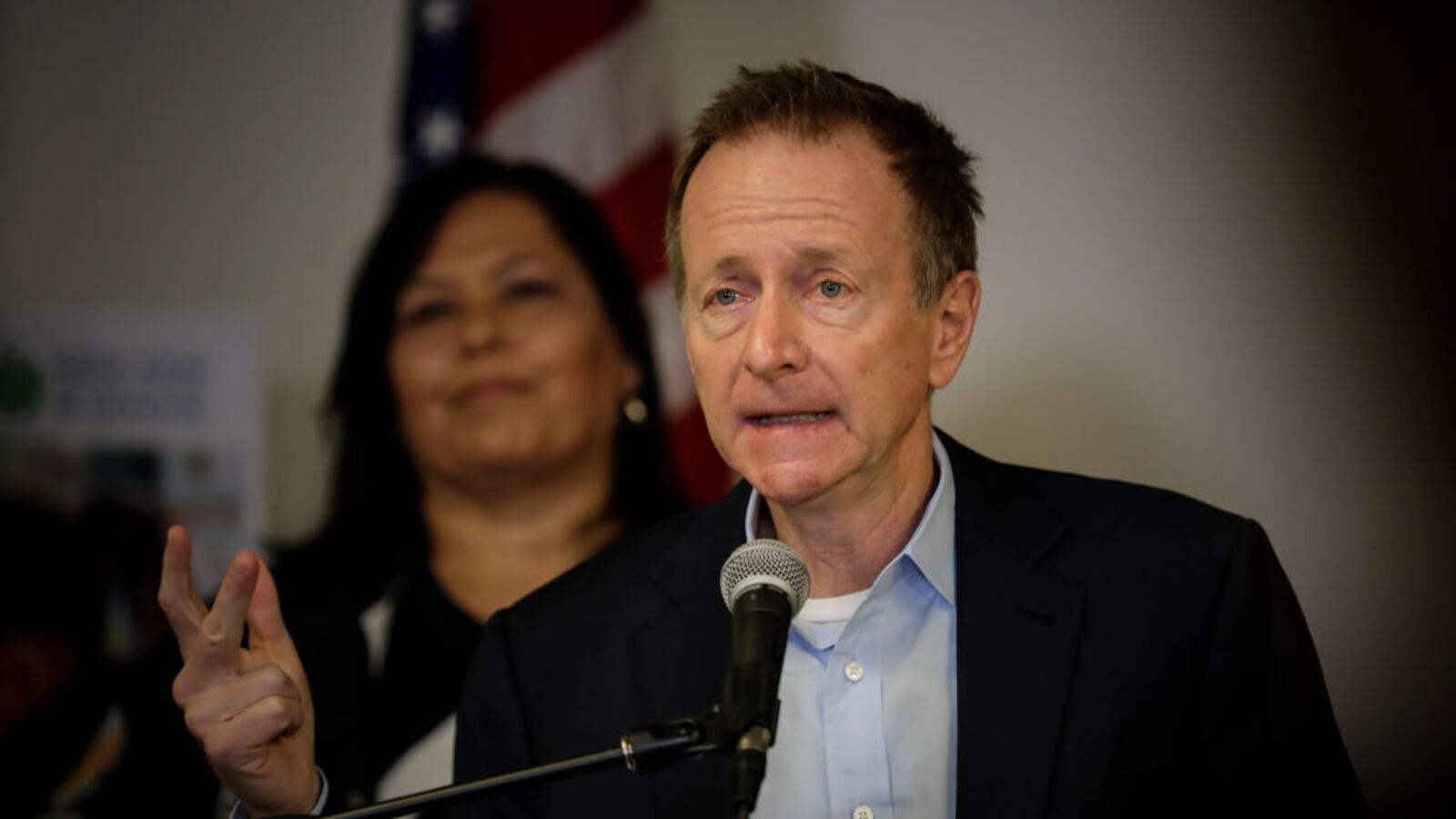Consultants hired by the country’s second-largest school district recommended a dramatic restructuring of Los Angeles Unified, documents show.
The 300-plus pages of memos, presentations, and plan drafts offer a revealing look at options district leaders were weighing in 2018 before the district was consumed by a weeklong teachers strike. Created by the consulting firm Kitamba, the documents lay out an aggressive timeline for assigning schools to 32 support networks, giving principals more power, and cutting the central office by fall 2019.
The January strike appears to have derailed the plans. A spokesperson for Los Angeles Unified declined to comment.
After this story was published, the Los Angeles Times published an interview with Los Angeles Unified Superintendent Austin Beutner, who said a substantial restructuring is no longer planned.
“We went through an exhaustive exercise. We listened to suggestions and ideas and we dismissed many of them that might have been tried elsewhere in the country,” he told the Times.
The Times has previously reported aspects of the ideas being proposed, many of which were confirmed by the documents obtained by Chalkbeat through a public records request. In November, Beutner said a strategic plan would be made public within weeks. Still, the documents offer more detail about what was being considered by Beutner in the fall — and the key decisions leaders faced about how a new system should work.
The documents recommend that schools be given more control in exchange for stricter accountability for results. Principals would see “great flexibility … in all areas including budget and talent,” and a summary dated December 2018 suggests the district create a “school performance framework” to add accountability and make school performance more transparent to families.
The network structure would provide better, more targeted support for schools and principals, argued the consultants, who drew on policies in other districts, especially New York City under former mayor Michael Bloomberg. (Networks there were mostly disbanded in 2015.)
The central office would be scaled back and would refocus on “setting system-wide expectations, creating economies of scale, and legal compliance.” One slide suggests minimum cuts of $72 million or 431 full-time non-school-based staff, with savings used to create networks and give more money to schools.
One part of a presentation offers two options, presumably for district leaders. Should L.A. adopt Denver’s approach to school autonomy, where all schools have the ability to opt out of the district’s choices for things like curriculum and training, or Dallas’s approach, where high-performing schools earn it?
Another slide describes different districts’ approaches to turning around struggling schools, including offering intensive support, citing Newark; closing schools, citing Chicago and New York City; and having charter operators take schools over, citing Indianapolis and Camden, New Jersey. The consultants don’t appear to have endorsed one approach over another.
A separate summary says Los Angeles Unified would create two or three networks of “persistently underserved” schools reporting directly to the central office.
Some items included in that summary are vague, like “encourage innovative approaches to personalized learning.” Others are more concrete, like launching a principal’s academy and creating a one-stop hotline for parents and principals.
The documents state a goal of having “a drumbeat of positive press” around the initiative. Beutner has pitched the initiatives to community members as a strategy for “reimagining L.A. Unified,” language regularly used in the documents. The documents also include takeaways from focus groups with teachers and school leaders.
In some ways — including the emphasis on autonomy and accountability — the documents indicate support for key tenets of the portfolio model of school reform.
But the documents barely mention charter schools, which educate about one in five Los Angeles public school students. Portfolio districts often expand charter schools or use them to turn around struggling district schools. That’s not clearly recommended in these documents. (One bullet point does suggest “streamlining and expanding access to options in our enrollment system.”)
During the January strike, United Teachers of Los Angeles criticized what it described as the district’s portfolio plan and its partnership with Kitamba. (A spokesperson at the time said Los Angeles Unified is not pursuing a portfolio approach.) Kitamba won a $765,000 contract for its work, paid by a slate of outside donors, including the Eli and Edythe Broad Foundation.
Details of Kitamba’s contract and scope of work were reported in February by the Los Angeles Times after school board member Scott Schmerelson criticized Beutner for not disclosing contracts with consultants, including Kitamba, or the work they had done for the district.
The district also hired former Newark schools chief Cami Anderson, now the CEO of a consulting firm, to develop plans focused on equity and special education, and the accounting firm Ernst and Young to improve the district’s efficiency. The documents indicate Ernst and Young was examining the district’s spending on facilities maintenance, food services, transportation, and worker’s compensation.
The Los Angeles Unified school board has been focused recently on staving off a fiscal crisis, making the case for a tax increase to fund schools. Meanwhile, two candidates are set to face off next month for an open seat on the seven-member school board.
This story has been updated to include details from a Los Angeles Times interview with Austin Beutner.


